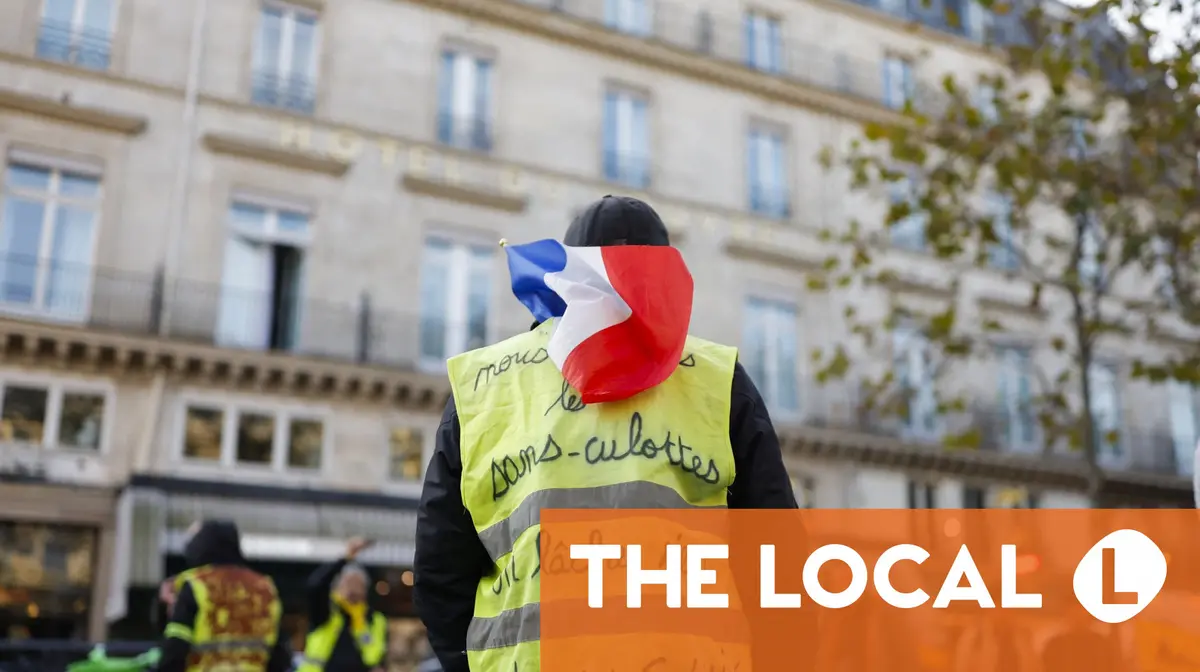A mysterious online collective is calling for a ‘total blockade’ of France on September 10th – here’s what we know about the group, and how much disruption they’re likely to bring.
In July Prime Minister François Bayrou unveiled the outline of his 2026 Budget, with a €44 billion savings plan that includes scrapping two public holidays.
Predictably, his ideas have not gone down well with many, and there are already discussions of strike actions, as well as political condemnation and the threat of a no-confidence motion in Bayrou himself.
But in amongst the usual signs of dissent is something a little different – a seemingly new group calling for ‘bloquons tout’, or a total blockade of France.
Here’s what we know about them;
September 10th – one of the very few concrete pieces of information that the group has released so far is the date of its planned action; Wednesday, September 10th.
This is planned to coincide with the start of the debates in parliament on the 2026 Budget.
The plan and the group itself are sometimes also referred to as Mouvement du 10 septembre – the September 10th movement.
Online – the group is not affiliated with any of the French unions or political parties, and they first emerged as an online collective.
They initially presented themselves as ’20 apolitical people’ who are calling for the 2026 Budget to be struck down, and threatening a ‘total and unlimited’ blockade of the country if that doesn’t happen.
Since their initial call on July 15th, social media accounts using the ‘bloquons tout le 10 septembre’ name have proliferated. They are especially active on X (formerly Twitter) but also use Facebook and TikTok widely.
Advertisement
Initially, they would only agree to speak to journalists on the basis of anonymity, but some local groups have allowed themselves to be interviewed, making preparations for September 10th.
Aims – the initially stated aim was simply the withdrawal of the 2026 Budget plans as described by François Bayrou, but more recently social media accounts claiming to speak for the movement have also issued calls for a citizen’s initiative referendum, wage and pension increases, a general strike and a ‘general lockdown’ (which appears to be a kind of stay-at-home strike action by the general population).
As the movement doesn’t appear to have a formal hierarchy, it’s not clear whether these demands are being made on a national or a local level.
Support and disruption – the nature of the group and its online origins have drawn immediate comparisons with the gilets jaunes (yellow vests), who caused enormous disruption in France in 2018 and 2019 with a series of Saturday protests.
They too began life as a single-issue group – protesting about a new road tax – before the movement broadened out to encompass issues ranging from the cost of living to local democracy via services in rural France and school and hospital closures.
Advertisement
The September 10th movement has won the backing of the far-left La France Insoumise political party, whose leader Jean-Luc Mélenchon said over the weekend: “On September 10th, I call on everyone to support this movement and participate in this effort to bring the country to a standstill.”
However, there has also been speculation that the group is a far-right project, or even that it could be a Russian-backed campaign.
Bizarre as that may sound, there have been several examples or Russian-backed individuals or groups trying to spread discord in France, many of them online but some involving operations in real life.
READ ALSO: ANALYSIS: How serious is Russian interference and disinformation in France?
An investigation by the left-wing newspaper Libération suggested that the group has its roots in a TikTok account called Essentials, which describes itself as a conservative organisation calling for “a sovereign France” and which wants to remain attached to its “Christian roots”.
La France Insoumise deputy leader Manuel Bompard on Monday was forced to deny that the September 10th movement has far-right links, telling France Info: “I don’t believe at all that the demands emerging from this movement are positioned on the far right. The same thing was said during the ‘yellow vest’ protests, and the yellow vest movement resulted in demands for more democracy, more fiscal justice and more social justice.”
But the €44 billion question – how much disruption will the blockade cause? – is hard to predict, since it’s not easy to judge how online support, such as sharing hashtags and retweeting posts will translate into action on the ground.
The initial ‘yellow vest’ actions caught French authorities off guard with the level of support they attracted, so it’s likely that this time policing resources will err on the side of caution.
It’s also not clear whether unions will join the September 10th action or take separate actions such as issuing strike calls – the inter-syndicale group is due to meet on September 1st to decide a strategy, although the hardline CGT union has expressed support for the idea of a September 10th action.
Advertisement
Several former ‘yellow vests’ have told French media they will not join the actions, as they see them as being too close to mainstream politics.
